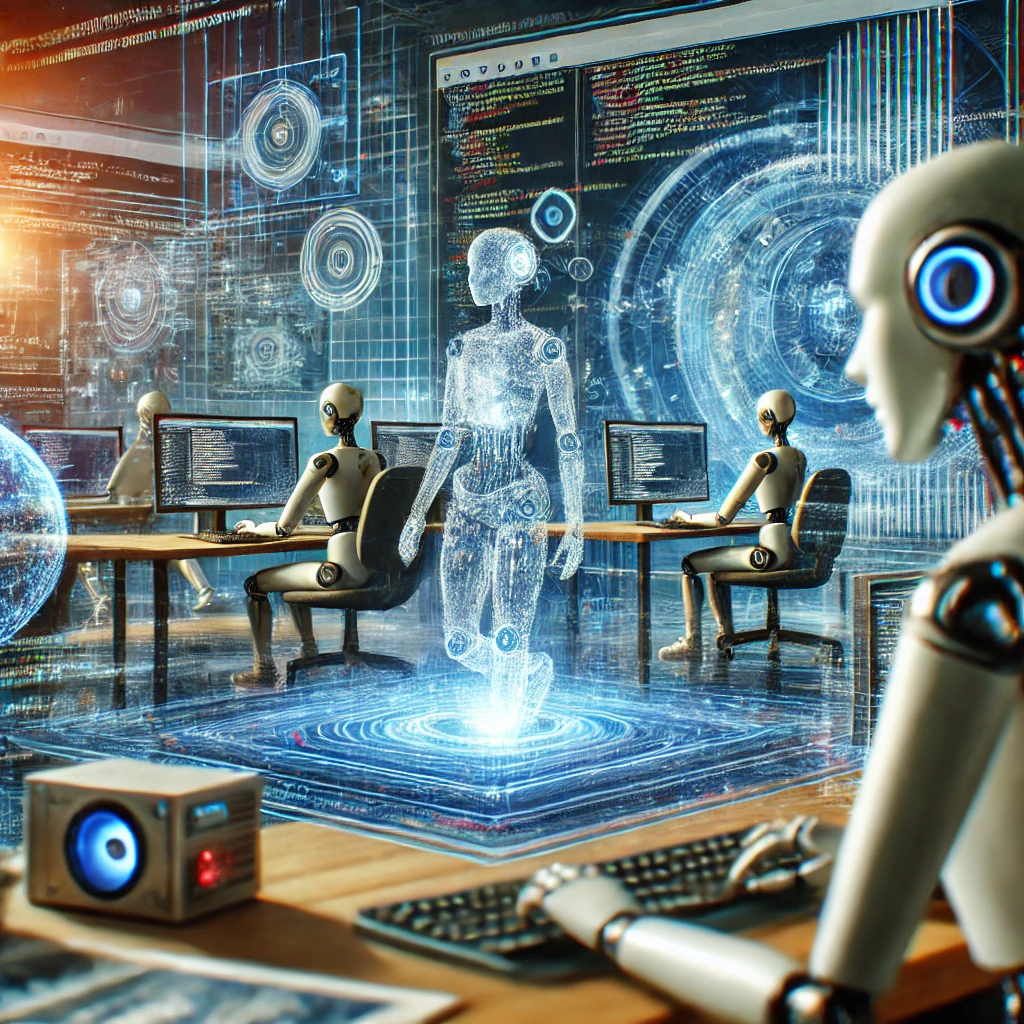AI has already reshaped software development—but what’s next?
From AI-powered coding assistants to self-optimizing applications, AI is accelerating the way we build software. But will AI ever reach the point where it writes software without human intervention? Will traditional development roles evolve—or disappear altogether?
Let’s explore the biggest predictions for how AI will shape the future of software development over the next decade.
🚀 1. AI-Generated Code Will Become the Norm
Right now, AI tools like GitHub Copilot and OpenAI Codex assist developers by suggesting code snippets. But in the next 10 years, we could see:
✅ AI writing entire applications with minimal human input.
✅ Fully autonomous bug fixes where AI detects, patches, and tests issues instantly.
✅ Codebases that evolve on their own, adapting to new requirements automatically.
Will developers still need to write code? Likely, but AI will handle more of the heavy lifting, shifting developers toward high-level system design.
🏗 2. AI Will Replace Traditional Software Testing
Manual testing is already being automated, but in the future, we may see:
✅ Self-learning test automation that evolves with each software update.
✅ AI-driven security audits that detect vulnerabilities before humans even notice them.
✅ AI predicting software failures and proactively fixing them.
This could mean faster, more reliable releases—but also a shift in QA roles from manual testing to AI oversight.
💡 3. AI-Powered DevOps & Continuous Deployment
AI is already streamlining DevOps, but the next step is self-managing software deployment.
In the next decade, AI could:
✅ Auto-scale infrastructure in real time based on demand.
✅ Automatically roll back bad deployments before users notice.
✅ Predict performance issues and fix them before they impact users.
AI will automate nearly every step of software deployment, making DevOps teams more focused on strategy than execution.
🤖 4. The Rise of No-Code and Low-Code AI Development
No-code and low-code platforms are growing, but AI will take them even further by:
✅ Translating natural language into complex applications with minimal human input.
✅ Allowing non-developers to build advanced software without coding knowledge.
✅ Bridging the gap between business users and technical teams with AI-generated applications.
Will developers still be needed? Yes—but their roles may shift toward customizing, optimizing, and managing AI-generated applications.
🔄 5. AI-Driven Software Evolution: Self-Optimizing Codebases
Right now, software ages—it becomes outdated, inefficient, and difficult to maintain. In the future, AI might enable:
✅ Code that rewrites itself to stay optimized.
✅ Self-updating libraries that remove security vulnerabilities automatically.
✅ Applications that evolve based on user behavior and feedback.
Instead of software becoming obsolete, it could continuously improve itself.
⚖️ 6. The Ethical & Security Challenges of AI in Development
With AI generating more code, testing, and deployments, new risks emerge:
❌ AI-written code could introduce security vulnerabilities.
❌ Bias in AI training data could lead to flawed applications.
❌ Over-reliance on AI could lead to a loss of human expertise.
Developers will need to balance AI efficiency with ethical responsibility, transparency, and security.
🔮 7. The Role of Developers Will Evolve, Not Disappear
Despite AI’s advancements, human developers won’t become obsolete—but their roles will change:
🔹 Less manual coding → More AI oversight and strategic thinking.
🔹 Less debugging → More AI model training and validation.
🔹 Less repetitive work → More focus on architecture, security, and innovation.
The best developers won’t be the ones writing the most code—they’ll be the ones leveraging AI to write the best code.
🚀 Final Thoughts: What’s Next?
AI is rapidly transforming software development, and over the next decade, we’ll likely see:
✅ AI generating most of the code we use.
✅ Automated testing and deployment becoming the standard.
✅ Developers focusing on strategy, design, and AI training rather than manual coding.
The future isn’t about AI replacing developers—it’s about AI amplifying what developers can do.
What do you think? Will AI ever take over software development completely, or will human expertise always be essential? Let’s discuss!
